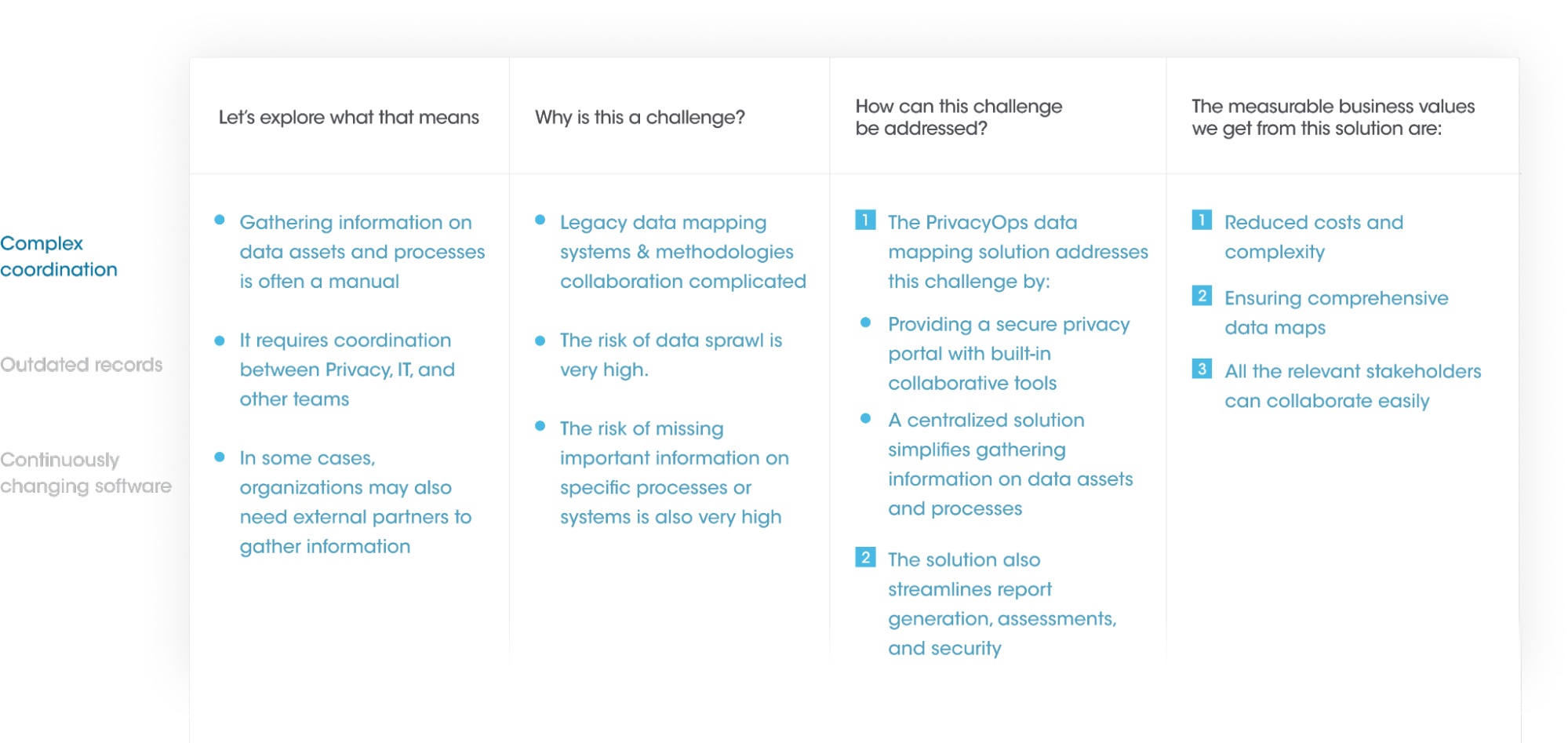Gathering information on data assets and data processes is often a manual process requiring complex coordination between privacy, IT, and other teams across the organization. In some cases, organizations may also need external partners to gather information.
Existing legacy systems and methodologies for data mapping make collaboration between various stakeholders complicated. The risk of data sprawl, that is, the unaccounted spread of personal data to multiple systems, is very high because the information is collected or shared via emails and spreadsheets. The risk of missing out on important information on specific processes or systems is also very high.
The PrivacyOps data mapping solution addresses this challenge by providing a secure privacy portal with built-in collaborative tools like inviting internal and external stakeholders. Thus, the centralized data mapping tool simplifies gathering information on data assets and data processes from key stakeholders. The tool also streamlines report generation and assessments while ensuring the security and accountability of the data.
The measurable business value we get from this privacy portal is:

Information on data asset processes can quickly become obsolete due to data’s dynamic nature, collection, and flow in the organization.
Legacy methods of data mapping using spreadsheets and word documents require significant time, resources, and capital to ensure data maps once created within an organization are constantly maintained and updated by privacy teams. Even then, given the dynamic nature of organizations and businesses in the modern world, the risk of not capturing specific updates exists due to human error. This increases the risk of regulatory sanctions as well.
In this case, the PrivacyOps data mapping platform addresses this challenge via automated data scanning and asset discovery using advanced AI-powered automation and data intelligence. Integrated data scanning enables privacy teams to scan data stores and systems to maintain updated records automatically. It can also trigger assessments dynamically and update them.
The business value of keeping updated data maps is reduced liability because organizations can avoid regulatory risks and data breaches with accurate records.
Incorporating privacy by design principles within the software and ensuring those principles are maintained during the entire development lifecycle is a regulatory requirement. Also, the organization’s brand reputation is at risk if it fails to protect customer personal data.
The PrivacyOps data mapping solution implements intelligent Privacy Impact Assessments (PIA) and Data Protection Impact Assessments (DPIA) to solve these problems. Automated intelligent PIAs and DPIAs within the solution follow the software development life cycle and are triggered when changes or development cause unforeseen privacy risks. Embedded APIs and privacy controls can then be developed and implemented to ensure real-time best practices are constantly employed.
The measurable business value an organization obtains from this is brand improved reputation. Thus, the PrivacyOps data mapping platform ensures that an organization’s brand reputation remains intact by embedding privacy practices into its business processes.
[email protected]
Securiti, Inc.
3155 Olsen Drive
Suite 325
San Jose, CA 95117